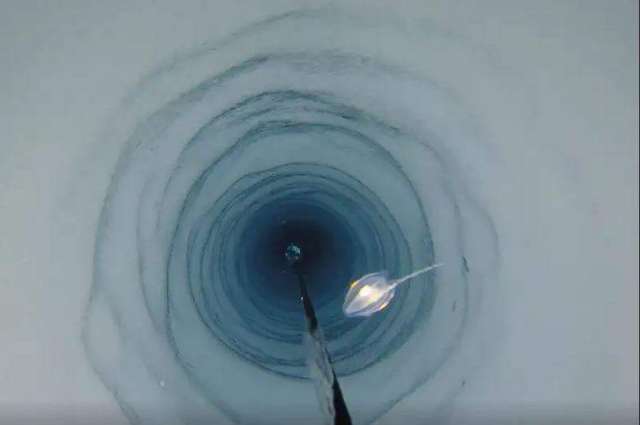Scientists have discovered unidentified sponge-like life forms living under the Antarctic ice shelf, according to a paper published in the peer-reviewed Frontiers in Marine Science journal on Monday
MOSCOW (Pakistan Point News / Sputnik - 15th February, 2021) Scientists have discovered unidentified sponge-like life forms living under the Antarctic ice shelf, according to a paper published in the peer-reviewed Frontiers in Marine Science journal on Monday.
According to the paper, titled "breaking All the Rules: The First Recorded Hard Substrate Sessile Benthic Community Far Beneath an Antarctic Ice Shelf," scientists drilled access holes through the Filchner Ice Shelf during the austral summer of 2015-2016 and 2016-2017 and used a video camera to record footage of the seabed and water column. At one point, the scientists discovered "a large sub-rounded boulder which is black/gray in color that was found to host a diverse benthic [ocean-bottom] fauna."
"The discovery of an established community consisting of only sessile, probably filter feeding, organisms (sponges and other taxa) on a boulder 260 km [161 miles] from the ice front raises significant questions, especially when the local currents suggest that this community is somewhere between 625 km [388 miles] and 1500 km [932 miles] in the direction of water flow from the nearest region of photosynthesis," the paper reads.
The paper states that the discovery raises many ecology-related questions that are beyond the current state of knowledge.
"The uncertainty around the identity the other stalked and filamentous taxa lies in the lack of detail obtainable from the video. However, they are sessile and have not been observed at any other previous borehole locations," the paper adds.
The paper also raises the issue of what will happen to such life forms in case of ice shelf collapse and stresses the need for international effort to study these communities as their existence challenges the established views on what kind of organism can survive without daylight and has broader implications for the issue of the evolution of the first complex organisms on Earth.




